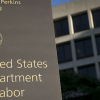Kenyan Clergy Endorse Alcohol Crackdown

The Kenyan government is embarking on a significant overhaul of its alcohol policy, enacting a new National Policy for the Prevention, Management and Control of Alcohol, Drugs and Substance Abuse designed to combat the nation’s growing addiction crisis.
These measures, which include raising the legal drinking age and implementing stricter regulations on alcohol sales and consumption, have received strong support from religious organisations, albeit with caveats regarding ethical enforcement and comprehensive community support. The newly implemented policy addresses mounting concerns over substance abuse trends, particularly among young Kenyans.
A recent nationwide survey conducted by the National Authority for the Campaign Against Alcohol and Drug Abuse (NACADA) in collaboration with the Kenya National Bureau of Statistics, reveals alarming rates of early initiation into substance use. The study indicates that children are beginning to consume alcohol as early as age seven, with tobacco use starting at six. Cannabis and prescription drug use have been recorded from the age of eight, and khat from nine.
The study further estimates that 1.36 million Kenyans are currently addicted to alcohol, and one in six citizens aged 15 to 65 uses at least one addictive substance. Cannabis use has surged by 90 percent in the last five years, and polydrug use is becoming increasingly common. The new policy introduces a range of restrictions aimed at limiting access to and visibility of alcohol, especially for minors.
Alcohol sales are now prohibited in locations such as vending machines, public beaches, recreational facilities, supermarkets, toy shops, online platforms, and public transport systems. The consumption of alcohol is also banned in restaurants, clubs, and educational institutions. Furthermore, alcohol outlets must be located at least 300 metres from any learning institution, and alcohol cannot be sold or consumed at events attended by children or where adults are accompanied by minors.
Faith-based coalitions, including the Kenya Coalition of Church Alliances and Ministries (KCCAM) and the Evangelical Alliance of Kenya (EAK), have voiced their support for the government's renewed commitment to tackling addiction. However, they emphasise that the success of these reforms depends not only on regulatory stringency but also on transparency, compassion, and sustained investment in public education and rehabilitation initiatives. Religious leaders underscore that the crisis necessitates more than just regulatory intervention.
Bishop Geoffrey Njuguna of Deliverance Churches describes the government's action as “bold, necessary, and long overdue,” highlighting the profound strain that substance abuse places on families, schools, the economy, and the healthcare system. KCCAM cautions that without ethical enforcement, the reforms risk being undermined by corruption and harassment.
The coalition notes that “recent history has shown that well-meaning regulations are often easily turned into avenues for rent-seeking by rogue officials,” urging authorities to ensure that licensing and enforcement mechanisms are transparent and insulated from bribery, especially at the local level. The coalition emphasises the devastating impact of addiction on the moral and social fabric of society. Bishop Kepha Omae, chairperson of KCCAM, stresses the importance of combining legal reforms with robust support systems.
"This policy should not merely be about changing rules on paper. It must truly be about restoring dignity, purpose, and moral clarity to a generation that is truly under siege," Omae says.
He calls for increased investment in youth engagement programmes, public education campaigns, and accessible rehabilitation services to prevent the emergence of illicit brews and unsafe alternatives that often flourish when formal alcohol markets are restricted.
The Evangelical Alliance of Kenya echoes these sentiments, commending the policy’s emphasis on prevention, treatment, and community empowerment. Bishop Philip Kitoto, chairperson of EAK, notes that the policy’s grounding in evidence-based interventions and constitutional rights offers a strong foundation for national healing.
"We particularly commend the policy’s protection of vulnerable groups—especially children and youth—from the deceptive influences of harmful substances and their aggressive marketing," he says.








Add new comment